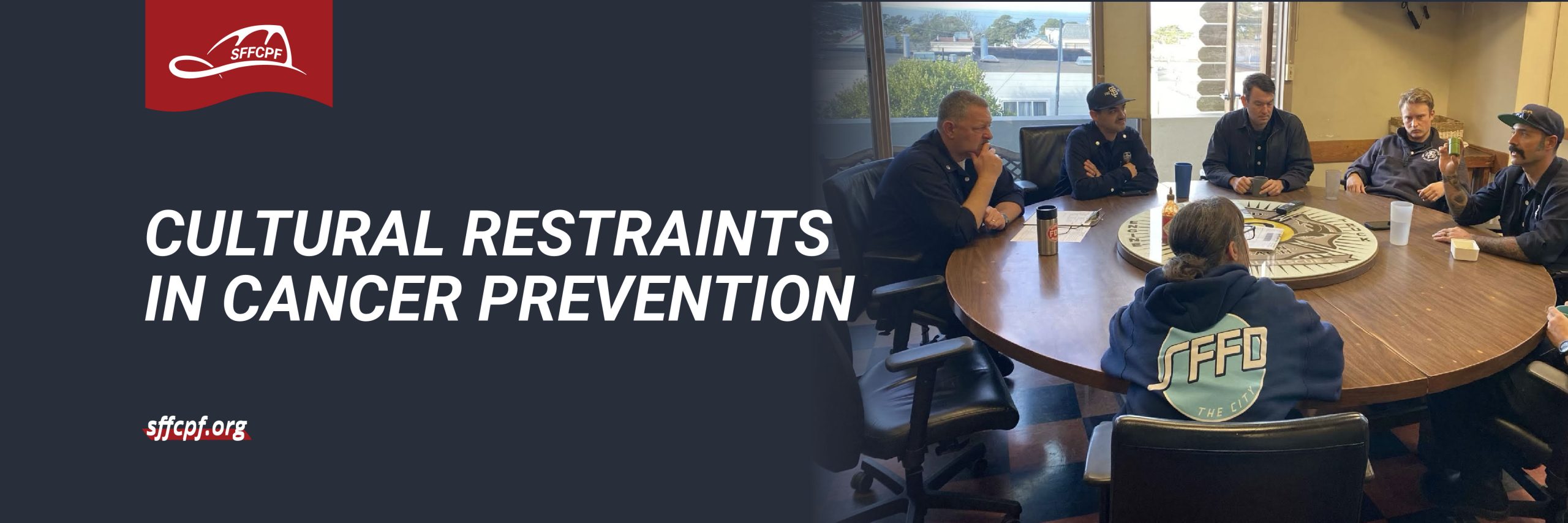Justin Beede, SFFD Truck 18 | SFFCPF Board Director
Simply put, culture is behaviors, attitudes, values and beliefs that are shared within a group or organization. Traditions live long in the fire service. Many are harmless, like our obsession for cooking or Pedro. But we tend to model our behavior from prior generations. It’s no secret the previous generation saw more fire than us, and the one before that, even more. We have a special respect for those that came before us. But we can’t continue to model our behaviors from these prior generations. They operated in a different environment than we do. For example, household products that used to be made from organic materials are now almost all made from plastic. Not to mention, they weren’t armed with the knowledge about cancer in the fire service that we are.
The men and women in the fire service are tough. You have to be tough physically, mentally, and emotionally. But we have much better ways of showing it these days than prior generations. Many people joke that we try to be an East Coast Fire Department on the West Coast. In the FDNY, they used to measure how tough a firefighter was by how much they could “take a feed,” as in “breathe smoke” in a fire before you had to back out. In the past, we loved to show how much “work” we got by intentionally keeping our PPE dirty. Nowadays, it shows you are disregarding all the information that has been shared with you about exposure and prevention.
When departments were first issued SCBA’s, it was a sign of weakness if you needed them. Luckily, we’ve changed this train of thought in most fires. But we can still do better. Although they can be cumbersome and hard to work with, we need to be better about extending their use to roof ops, overhaul, car fires, etc. I can be guilty of this too. It’s something I’m working on at every fire. Don’t even get me started on the fear of not looking “cool” wearing your SCBA.
Circling back to firefighters being tough, we also have personality traits that are harmful. We tend to have a “walk it off” or “muscle through the pain” attitude. Many of us hate going to the doctor. We also tend to be selfless, putting others health before our own. Of course, we’d take our family to the doc for any reason, but do we take ourselves for that persistent issue that we’ve been ignoring? The Detect Together program emphasizes knowing your baseline and noting any changes. The key here is early detection.
Change: A healthy tradition we have is talking about fires at the kitchen table. Much can be learned here. But we need to extend this behavior to also talking about cancer and prevention.
Any change in the fire service culture is slow. For cancer awareness and prevention, it’s going to take the new generation of informed and aware firefighters to become leaders, and leading by example. Company Officers may be the best for affecting change in some of these cultural and traditional restraints. If you’re a new firefighter and see an officer you respect take preventative measures, you’re likely to model your habits and behaviors from theirs.
But the bottom line is, it rests on each individual firefighter to make sure that they are taking measures to protect themselves. We have enough inherent risks with the job that we have no control over. Let’s take every step to reduce risk and exposure where we can.

